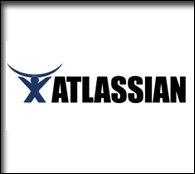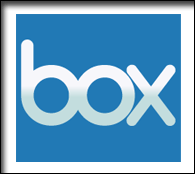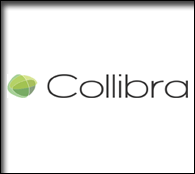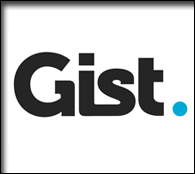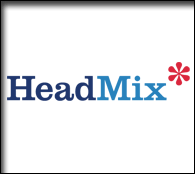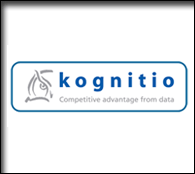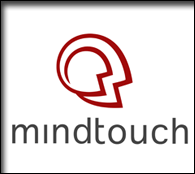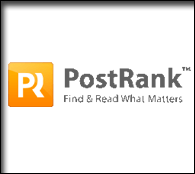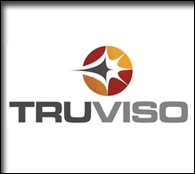Archive for August, 2008
Before the long weekend
by Eric Norlin on Aug.29, 2008, under general
This week is pretty traditionally a “do-nothing” week, as most of the people I know head off on vacation. This year, I gave-in, and have been using the week as a “semi-vacation” week as well (working mornings, off in the afternoons). However, there’s ONE THING you really should do before you clock out for the weekend: register for defrag. The reasons are simple: 1) early bird prices expire this weekend; 2) using the code “bday” will get you an additional $100 off; 3) this year’s conference is going to be focused on great topics, amazing people, and truly useful discussions.
So what are you waiting for? ![]()
Backing the Independents
by Eric Norlin on Aug.26, 2008, under industry stuff
It is no secret: there are a ton of “tech conferences” out there. The great majority of these are run by “media companies,” while a handful are run by “the independents.” By independents, I mean Chris and Ponzi Pirrillo (Gnomedex), Kevin Werbach (Supernova) and Ismael Ghalimi (Office 2.0) —and, of course, Defrag.
Not being a media company means a bunch of things, but one of the things that I really treasure is that I don’t have to be caught in the corporate game of “competing.” Companies think that way — “who do we compete with?” Threats, issues, problems. Independents (I’ve found), largely don’t. I’ve never felt that I compete with Ismael, even though we cover some of the same topics. At the end of the day, I trust that Defrag is sufficiently differentiated and unique (as is Supernova, Gnomedex and Office 2.0 from Defrag), and therefore, I’m actually over here *rooting* for their success. (sidenote: None of that is to say that folks inside of media companies don’t wish for people’s success - Steve Wylie at Enterprise 2.0 wished me success just the other day.)
When I hear that Supernova was awesome, I love it. When people report that Gnomedex was “amazing,” I say “good for them.” And, conversely, when I read that Ismael had a rough couple of days, I sympathize. To that end, let me say this, I’ve never been to Office 2.0 (though were it not for conflicting upcoming travel, I would be there this year), but I’m consistently amazed at Ismael pulling it off in the time-frame that he does. I prefer to have 6-7 months to organize a successful conference; Ismael prefers 60-90 days. Different strokes, right?
In any case, I applaud Ismael, and I’m pulling for him. If you can make it to Office 2.0, you should. How many times will you see a “media company” promote a “competitor?”
That’s why I love being an “independent.”
[You should, of course, also come to Defrag. Sorry, couldn't resist. ;-)]
Being everywhere and finding advocates
by Eric Norlin on Aug.22, 2008, under general, industry stuff
There’s some buzz going around today about Jason Calacanis’ email send about PR and startups. Like most folks, I largely agree with Jason’s missive, and I’d recommend that startups soak it in. Specifically, though, I wanted to focus in on “#2. Be Everywhere” — wherein Jason says: “During the Weblogs Inc. years I attended every possible event I could.” Now, at first blush, it would seem I’m about to turn this into a “why everyone must come to defrag” post, but I don’t mean it to be that. Rather, I’d like to highlight this point in the most general sense.
When Andre Durand and I were really trying to spread the word about Ping Identity in the early days, we did four things: 1) blog; 2) write substantive whitepapers about large (non-product brochure) issues; 3) network with people relentlessly - and attend every event that mattered.
Over the past few months, I’ve run into some startups that really don’t understand the value of “networking and attending.” Most often, I see this misunderstanding occur in the context of wanting to exhibit at some REALLY big event. The idea, of course, is not a bad one: If I can meet 2000 people (at an expo), I’ll have a better chance of “monetizing” than if I meet only 300, 400 or 500 people. In the early life of a startup, though, I think this is just flat out wrong. Your focus should be quality, not quantity.
Let me relay this via example: the single most important thing that happened in the early life of Ping was attending Esther Dyson’s PC Forum. The event was not cheap (hell, just getting in was tough) - as a startup living on an angel round, Andre and I went and spent nearly 10k — just to go (no sponsorship, etc of any kind)! And the event wasn’t “big” by expo standards (500 people). However, they were the right 500 people. [sidenote: 10k at that point in time was basically 10% of our TOTAL angel funding - ie, not inconsequential.]
How do you define the “right” 500 (or 200, or 300) people? They are the “extreme influencers” (a term I use often) — people who’s social network is a gateway into dozens of other extreme influencers.
What happened to us at PC Forum? Ping went from a startup nobody knew about to a startup that analysts covered, journalists wrote about, big companies took meetings with, and VC funded (our Series A came *directly* from meeting Jeremy Allaire at PC Forum). The value was evident. I probably only actually talked to 20 people in 3 days. But in the weeks following PC Forum, those 20 people introduced me to 100’s of folks that mattered to our business.
The right people are people with influence that *love* to become advocates.
In a sense, then, “being everywhere” is about being everywhere with those kinds of people. All it takes is one “you should meet eric, he’s a great guy” intro - and the next thing you know you have thousands (literally *thousands*) of meaningful downloads (we were in the open source, down-loadable software biz at the time). Sharing breakfast with the CTO of General Motors, a VC, Jeff Bezos and Kevin Maney (tech reporter for USA Today) will do more for your startup than “meeting” 2000 people at an expo.
Here’s what I’m not saying: focus only on “famous” people. Often the most important intros come from folks that aren’t famous. But an “extreme influencer” crowd will be happy to get to know you, and even more happy to tell everyone they know about you (if you impress them).
So, the next time your startup thinks about early PR and influence-peddling, remember that “being everywhere” really means finding advocates. And its hard to find advocates in a crowd.
Defragging the lazy days of summer
by Eric Norlin on Aug.21, 2008, under general
Can you feel it? The last two weeks of August are here. Sure, a lot of us are still “in the office” and some cool things are going on, but there’s definitely a change in vibe. Everyone seems to have shifted into the lazy days of summer; cruising out the month as we head into September — at which point the tech world will explode with activity once again.
Rest assured, the fall brings with it all kinds of product launches, new pitches and hot ideas. And make no mistake, Defrag’s gonna be one of the key places for that stuff (I’ve even had a company that was accepted for a certain “non-payola” demonstration conference tell me they’re thinking about launching at Defrag instead).
Enough horn tooting. When you can drag your head out of the summer-ness that’s floating around, come on over and register (we’ve extended early bird through the end of the month).
Defrag and Fay
by Eric Norlin on Aug.18, 2008, under general
Defrag’s in Denver (a city I love), but my wife and I live in Florida. We’re probably not going to get the worst of Fay (we’re on siesta key), but we’ll see something. Either way, I won’t be “focused on Defrag” for 48hrs or so.
I’ve been twittering about it, and a great idea evolved in conversation: We’ll be donating 25% of Defrag’s registrations this week to a “help/cleanup” from Fay fund.
So, do something nice for folks, while doing something cool for yourself. Who knows, maybe we’ll do this all the time for natural disasters - its just cool.
Pass the word.
Early Bird Extended
by Eric Norlin on Aug.18, 2008, under general
You asked, I listened. I received a whole bunch of email this weekend asking for more time to get in at early bird rates. So, we’re responding.
I’m pushing early bird prices out to the end of August, so please - don’t delay - register today (hey, I rhymed!).
One personal note: I’ll be dealing with Tropical Storm/Hurricane Fay over the next couple of days, but should be back on-line shortly. ![]()
What folks thought of Defrag 2007
by Eric Norlin on Aug.14, 2008, under general
As we approach the Defrag early bird expiration, I’ve been enjoying some of the quotes from attendees at last year’s Defrag:
“At these old-school conferences I’ve been at I kept thinking about how much more vital and useful Defrag was in comparison.”
“If you want to be informed, go to other conferences. If you want to be challenged, go to Defrag!â€
“Defrag 2007 was an awesome conference with a bunch of super smart people (both speaking and attending). I can’t wait for Defrag 2008.â€
“Defrag has everything you need (brilliant people, an ambitious idea and great wi-fi) while skipping the hype events and agenda clutter that can dilute a tech conference.â€
“This first-year event was great, in nearly every way…I was taken by what Steve Larsen said about the event. He told me: ‘I was at the first PopTech conference, and I also attended the early PC Forums. This event has the same feel’…I know that I’ll be back again next year for more.â€
“The conference was excruciatingly well-organized and yet relaxed and fun…â€
“The event had quite the attendee and speakers list. You couldn’t spit and not hit an industry notable. â€
Truly, the single biggest personal benefit that I derive from Defrag is hearing (and knowing) that the people in attendance loved it. To everyone who was there last year, and everyone who is coming this year — thanks guys! I hope you’ll join us.
Early Bird and a lack of fluff
by Eric Norlin on Aug.13, 2008, under general
Early Bird prices for Defrag expire this Friday, so be sure to take advantage of them.
As I’m hoping you’ve seen, we’re building out quite the agenda -complete with a lack of fluff. So, if seeing celebrities (or semi-celebrity types) and having a snowball’s chance in hell of actually having a meaningful conversation with them is your thing, then please look elsewhere. If, on the other hand, you’d like to dig into truly innovative and interesting stuff with real thinkers and builders who want to have a meaningful conversation, then please join us.
Let the good times roll
by Eric Norlin on Aug.11, 2008, under conference topics, industry stuff
I’m pretty optimistic by nature (isn’t every entrepreneur?). But I’m also a realist - and by realist, I mean that I tend to spend an inordinate amount of time observing “macro-trends.” Lately, things have just been “feeling” better in the stock market. Sure, the bears are talking about “bear market rallies,” but some folks like Jim Cramer have started to make bottom calls.
Setting all of that aside, I think there’s one aspect to the bottom call/macro-trend side of things that bears (pun intended) watching: “collaboration” as the next great driver of technology adoption. As GigaOm points out, John Chambers of Cisco “never misses an opportunity” to talk up collaboration: “We believe we are entering the next phase of the Internet as growth and productivity will center on collaboration enabled by networked Web 2.0 technologies.” Networked web 2.0 technologies? Ahh yes, our old friend - “enterprise 2.0.”
As the U.S. economy recovers from this period of slowing (yes, I believe that’s beginning to happen), enterprise IT spending won’t just automatically explode again. Rather, IT managers everywhere will be looking for projects that give them the maximum “bang for the buck.” Focus will shift from cost containment (still a big driver) to “productivity enhancement.” And that magic little word (”productivity”) is where all of this collaboration stuff comes in.
Of course, the problem is actually bigger than simple “collaboration.” Dealing with the mounds (rivers?) of data - in both structured and unstructured terms - is the real challenge. What we’re ultimately going to have to deal with is how we can interact more efficiently with that data; how we can gain intelligence from that data. You see what just happened? We just wandered into a space where enterprise 2.0 meets the semantic web meets business intelligence - and no one single piece can get the job done.
Surely, you’ve heard this all before from me. The point here is not my usual “defrag brings the disparate parties together” rant. Rather, I’d like to emphasize how much wide open space there is for sheer technology innovation. Buying Webex simply won’t cut it. Implementing a social network won’t get it done. The answer is so much bigger, so much broader, that what we’re going to require is a big picture vision of the *problem* so that we can begin to collectively innovate on the pieces of it (a lot of that is already happening - but…).
The central point remains: the wide open space for software innovation in this space is immense.
While the rest of the world gets lost debating ad-driven models, or the use of technology in solving problems of scarcity, know that some of us are going to be concentrating on the strategic aspects of actual, grounded, software that is seeking to solve big, chunky problems of over-abundance.
Let the good times roll.
[sidenote: Early bird prices expire this friday - be sure to take advantage of that and join us in the defrag conversation.]
Taming data at Defrag
by Eric Norlin on Aug.08, 2008, under conference topics
One of the aspects of defrag that I’m trying to dig into much more fully this year is the problem of “massive data sets” and how it is that business can begin to take advantage of the vast pools of data they have (versus simply drowning in it). Its really where defrag starts to meet “business intelligence” in a more traditional sense.
To that end, I’ve had some great stuff coming from Mayank Bawa, the CEO over at Aster Data. Mayank will be presenting a session entitled, “Leveraging Data to form Closed-Loop Decision Processes.” Sounds scary, right? Mayank’s gonna show us how to get this done:
Most data generated on the Internet gets thrown away because it has traditionally been viewed as too expensive or low value to store and analyze. While the data businesses capture is now “growing out,” the smartest companies also recognize that the use of data is “growing up.” These companies are the ones who monetize the insights they gain by taming and analyzing those data sets, and feeding the insights back into operational purposes.
Oh my! Yes, it will be fun - and informative - and engaging. Join us.
